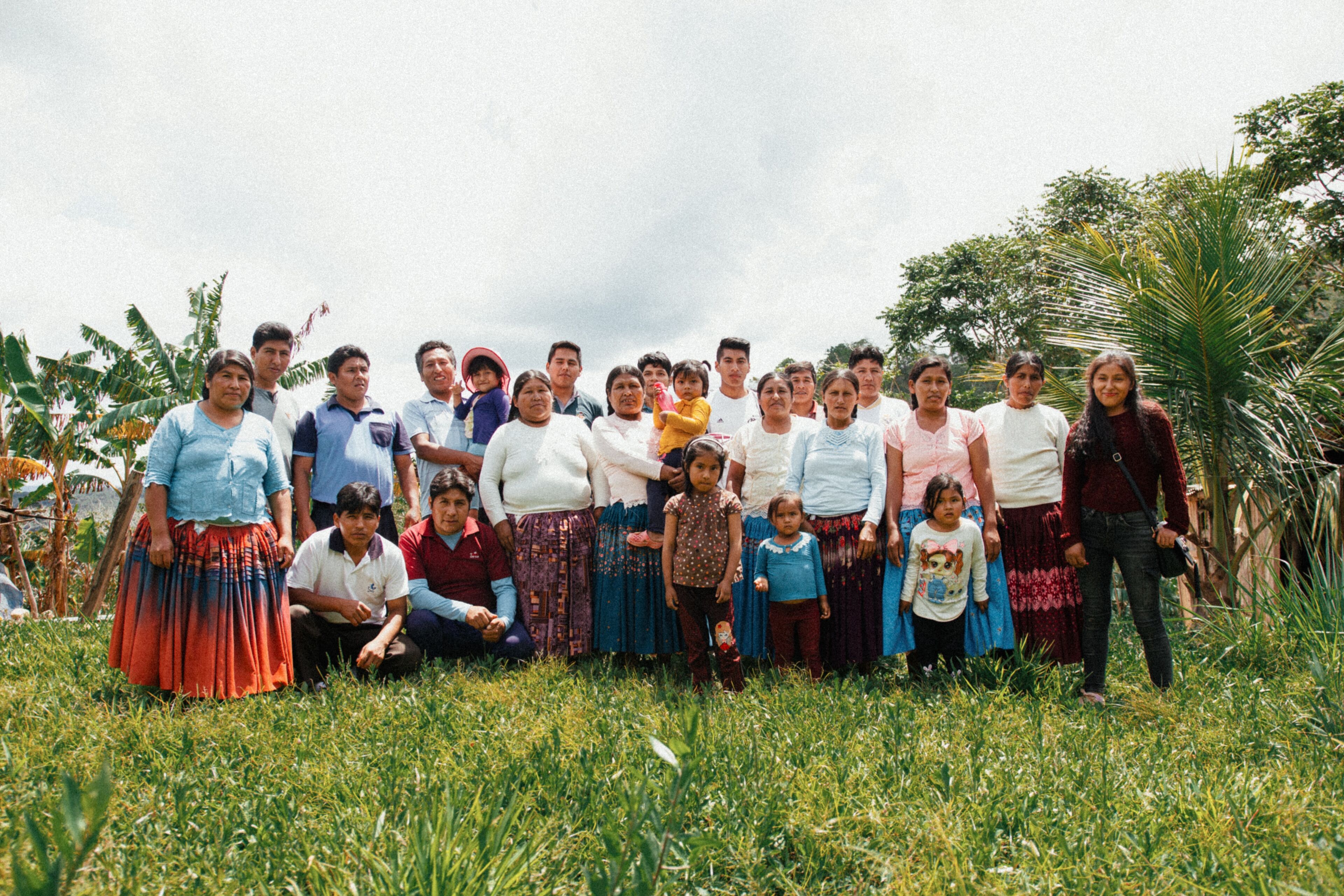Dans le secteur agricole, et plus particulièrement dans le secteur du café, les femmes ont une forte implication dans les fermes et représentent plus de 70% de la main-d'œuvre.
Matriarcas
Bolivie - La Paz - Yungas - MATRIARCAS - Grade 1 - Lavé
Choisissez votre crop :
Notes aromatiques :
Prix spot
€/kg
Ensemble, elles cherchent à défendre le rôle des femmes en Bolivie
Dans le secteur agricole, et plus particulièrement dans le secteur du café, les femmes ont une forte implication dans les fermes et représentent plus de 70% de la main-d'œuvre dans les champs, la récolte, le tri des grains ... Pourtant, le travail réalisé par les femmes reste malheureusement bien trop souvent dans l’ombre en raison de la forte tendance à valoriser le travail masculin.
Les femmes des coopératives San Juan et Aljiri de Caranavi se sont réunies autour du projet Matriarcas. À 20, elles produisent du café en parfaite autonomie.
Ensemble, elles cherchent à défendre le rôle des femmes en Bolivie, leur liberté ainsi que l'amélioration de leurs revenus et de leur qualité de travail actuelle. Le projet a aussi pour but de proposer des formations aux femmes de la région afin de les aider à gagner en autonomie.
Outils marketing & Certifications
PLV, carte postale, QR code packaging, …
- Bolivie
Origine
région
La Paz terroir
Yungas Espèce
Arabica Variétés
Typica,
Catuai rouge
Process
Lavé
Séchage
Lits de séchage
Conditionnement
60kg - Jute bags
Altitude
1500 - 1700 Période de récolte
Juin - Septembre Type de récolte
Manuelle
Terroir Yungas
Yungas est un mot quéchua signifiant « Terres tièdes ». Cette zone géographique est une vallée forestière située à l’Ouest de la Bolivie. Zone de transition entre les hautes terres andines et les forêts de l'Est, elle est caractérisée par un climat tropical, pluvieux et tiède. La très réputée « Route des Yungas » aussi appelée Route de la Mort, relie La Paz à Coroico sur 80 kilomètres. D’une altitude moyenne de 3600 m, cette route est connue pour son extrême dangerosité car environ 250 voyageurs y périssaient chaque année. Construite par des prisonniers paraguayens lors de la guerre, elle était le seul itinéraire reliant La Paz à la forêt amazonienne. Pentes abruptes, voie unique sans garde-corps, pluie abondante, sol boueux, brouillard fréquent et nombreux camions transportant des produits agricoles l’ont rendu célèbre dans le monde entier.

Projet Matriarcas - Bolivie
Mettre en avant les femmes productrices
The San Juan Agricultural Cooperative, Aljiri, independent women coffee producers of the municipality of Caranavi, together with the company LATA 16 Bolivian Coffee Laboratory that supports as the parent company through which the export to Belco will be made, seek to address this problem and give the value that corresponds to women coffee producers. For this reason, the MATRIARCAS program was created, which seeks to make known the feminine hands that give their time, dedication and passion to produce a coffee of excellent export quality. In addition to generating ambassadors of its own brand, the program will continue with technical support in training both in female empowerment and in the management of coffee cultivation, with the aim of reducing the educational gap that many women suffer in the field due to the unjustified social inequality of gender.
Sélection d'équipements
Prix unitaire
€ HT/U
Par xx produits
€ HT/U
Prix unitaire
€ HT/U
Par xx produits
€ HT/U
Prix unitaire
€ HT/U
Par xx produits
€ HT/U
Prix unitaire
€ HT/U
Par xx produits
€ HT/U
Prix unitaire
€ HT/U
Par xx produits
€ HT/U
Prix unitaire
€ HT/U
Par xx produits
€ HT/U
Prix unitaire
€ HT/U
Par xx produits
€ HT/U
